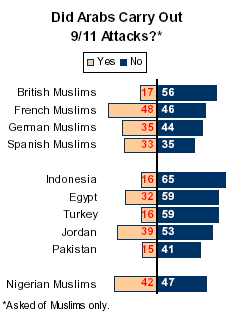Flemming Rose has a new article out on Spiegel in which he upturns the common interpretation of his publication of the 12 cartoons.
Those images in no way exceeded the bounds of taste, satire and humor to which I would subject any other Dane, whether the queen, the head of the church or the prime minister. By treating a Muslim figure the same way I would a Christian or Jewish icon, I was sending an important message: You are not strangers, you are here to stay, and we accept you as an integrated part of our life. And we will satirize you, too. It was an act of inclusion, not exclusion; an act of respect and recognition.
However, the article is more wide-ranging than that and contains an illuminating slice of autobiography.
I was raised on the ideals of the 1960s, in the midst of the Cold War. I saw life through the lens of the countercultural turmoil, adopting both the hippie pose and the political superiority complex of my generation. I and my high school peers believed that the West was imperialistic and racist. We analyzed decaying Western civilization through the texts of Marx and Engels and lionized John Lennon's beautiful but stupid tune about an ideal world without private property: "Imagine no possessions/ I wonder if you can/ No need for greed or hunger/ A brotherhood of man/ Imagine all the people/ Sharing all the world."
(The stupidity of that song overwhelms whatever beauty it might have.)
The main thrust of the piece is Europe's dilemma and the impasse in which it finds itself due to its own policies. He maintains, like Ayaan Hirsi Ali, that political correctness and cultural relativism must be cast aside so that the burgeoning Mulsim population of Europe can be integrated.
Rose looks to the US as an example of integration. He, like Bernard-Henri Lévy, distinguishes between the political definition of nationality there and the cultural one of European nations, and he calls for the latter to be superceded. Europeans must show a willingness to jettison entrenched notions of blood and soil and accept people from foreign countries and cultures as just what they are, the new Europeans.
Finally, one splendid quote. Mullah Krekar -- a Kurdish founder of Ansar al Islam who this spring was facing an expulsion order from Norway -- called our publication of the cartoons "a declaration of war against our religion, our faith and our civilization. Our way of thinking is penetrating society and is stronger than theirs. This causes hate in the Western way of thinking; as the losing side, they commit violence."
What a delicious irony. The West, as the losing side, commits violence. That is, it publishes cartoons. The winning side, on the other hand, bellylaughs and gets on with life. Right? How many died?
Tagged: Islam, Multiculturalism, Cartoons, Flemming Rose







